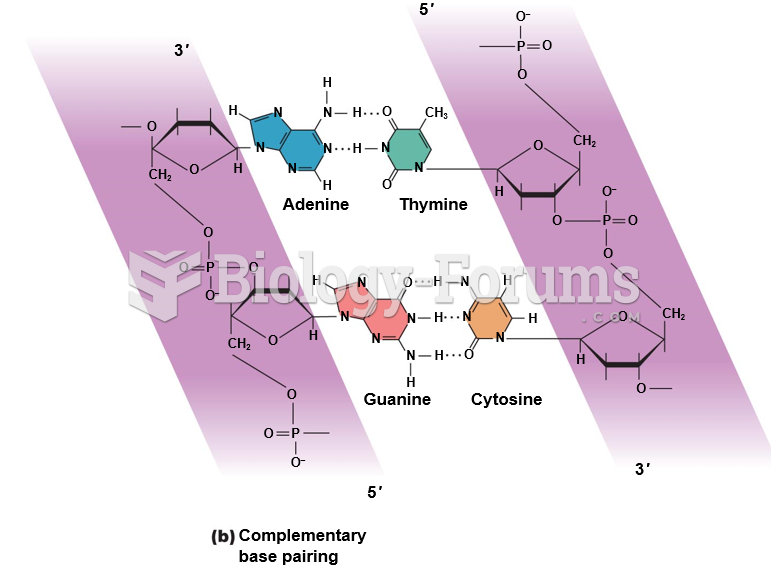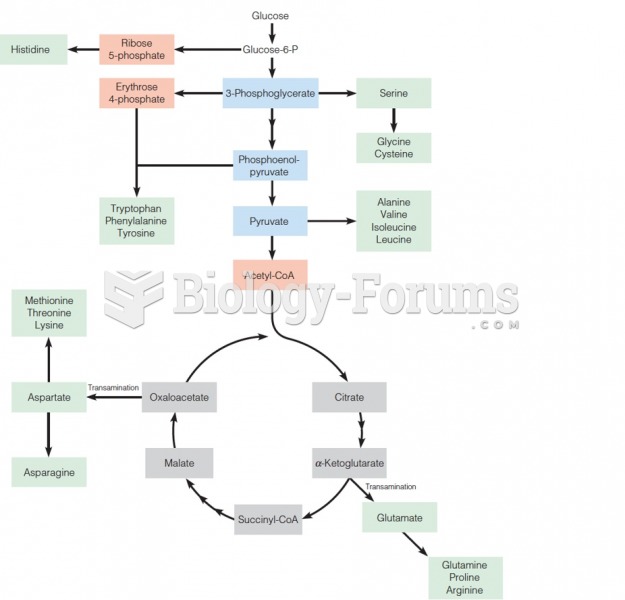Answer to Question 1
When amino acids are oversupplied, the body cannot store them. It has no choice but to remove and excrete their amine groups and then use the residues in one of three ways: to meet immediate energy needs, to make glucose for storage as glycogen, or to make fat for energy storage. The body readily converts amino acids to glucose. The body also possesses enzymes to convert amino acids into fatty acids. An indirect contribution of amino acids to fat stores also exists the body speeds up its use of excess amino acids for fuel, burning them instead of fat, making fat more abundantly available for storage in the fat tissue.
Answer to Question 2
Proteins help to maintain the fluid and electrolyte balance by regulating the quantity of fluids in the compartments of the body. To remain alive, cells must contain a constant amount of fluid. Too much can cause them to rupture; too little makes them unable to function. Although water can diffuse freely into and out of cells, proteins cannot, and proteins attract water. By maintaining stores of internal proteins and also of some minerals, cells retain the fluid they need. By the same mechanism, fluid is kept inside the blood vessels by proteins too large to move freely across the capillary walls. The proteins attract water and hold it within the vessels, preventing it from freely flowing into the spaces between the cells. Should any part of this system begin to fail, too much fluid will soon collect in the spaces between the cells of tissues, causing edema. Not only is the quantity of the body fluids vital to life but so also is their composition. Transport proteins in the membranes of cells also help to maintain this composition by continuously transferring substances into and out of cells. For example, sodium is concentrated outside the cells, and potassium is concentrated inside. A disturbance of this balance can impair the action of the heart, lungs, and brain, triggering a major medical emergency. Cell proteins avert such a disaster by holding fluids and electrolytes in their proper chambers.







